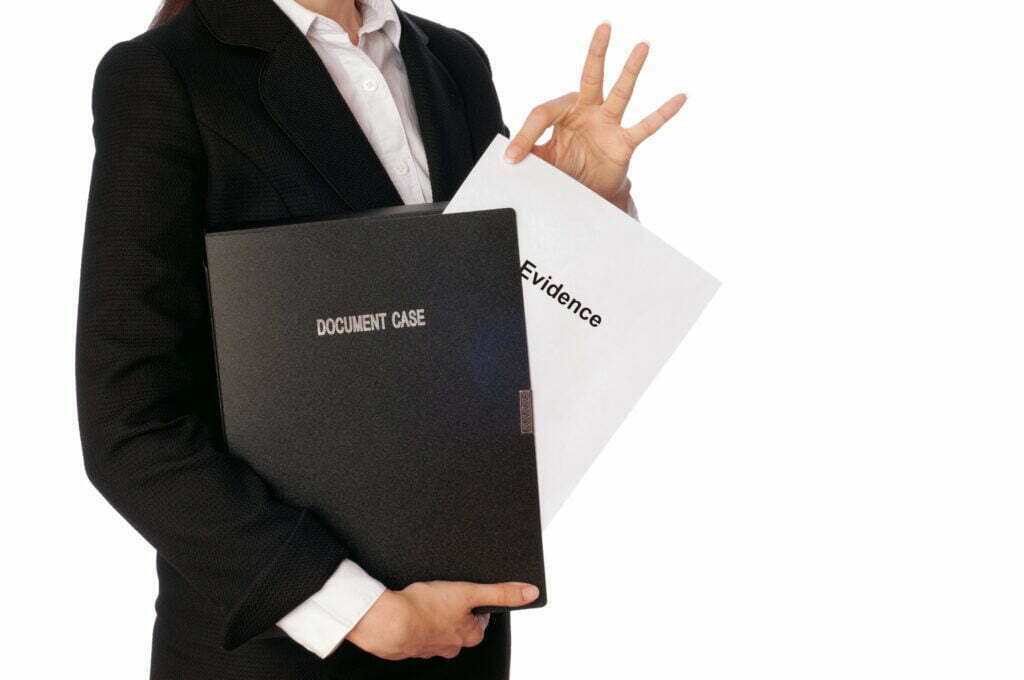It’s that time of year again, and boy, have we had some hot days this summer. As with every year when the weather gets hot, it’s a good idea to remember safety tips for working in the heat: particularly for those who work outside doing physical labor. It’s easy to forget that working in very hot conditions can be just as dangerous as working in the snow and ice. In this article, we discuss the relationship between the summer heat and workers comp.

According to OSHA, on average there are 36 work-related deaths caused by the heat every year. They also see about 2,380 heat-related illnesses and injuries, which can be incredibly serious.
If you’ve experienced heat stroke, heat exhaustion or any other condition from spending time working in the heat, you can file for workers’ compensation benefits. As with any workplace injury or illness, make sure you file for workman’s comp as soon as possible.
During the summer it’s best to limit intense physical labor in the heat. If you must work outside, make sure to take frequent breaks to seek shade and cool off. It’s also important that you stay hydrated. Drink water frequently or beverages that replenish salt loss through sweating, such as sports drinks or coconut water. If you or a coworker are showing symptoms of heat stroke, be sure to call 911.
You may have heard about a recent workers’ comp case in North Carolina: Wilkes v. The City of Greenville that shifted the world of workers compensation. This case had a huge impact on state workers’ comp policies due to the fact that it established that employers were responsible for injuries or conditions that occurred as a result of a workplace injury, even if the additional conditions or injuries developed after the initial accident.

Because of this ruling, it became the responsibility of the employer to prove that the additional conditions were not a result of the initial injury. However, in response to this decision, employers are calling for the law to change. They want to shift the burden to the employee, and have them prove that their additional injury is related in order to receive compensation.
Employers were concerned that the initial ruling in favor of Wilkes would lead to an increase in the cost of workers’ compensation insurance. However, many attorneys believe that this is not true, and that this ruling harms employees more than anything else.

It seems that going forward it’s going to be even more vital that an injured worker has an experienced attorney on their side to help them get the most out of their workers’ comp claim. Working with an attorney early on in your workers’ comp will give you the advantage of their insight and experience, so you can know what to expect every step of the way.
After you’ve been injured at work, it’s very likely that you’ll be given work restrictions by your doctor. If this happens, you’ll be able to return to work in a light duty job. This job is likely a modified version of your old job, or an alternative job that complies with your restrictions. In many cases this is a good situation, and there are no problems. However, just because this job falls within your work restrictions, that doesn’t mean additional injuries won’t occur.
It could be that you end up overusing one body part to compensate for your injury. For example, let’s say you injured your shoulder while at work. When you start your light duty job, you’re probably going to have to work one-handed while your injured shoulder recovers, and it is quite possible for you to injure your other shoulder.
If this happens, it’s likely the insurance company won’t agree to pay for the injury to the other body part. But don’t let that stop you! We have had success at the Industrial Commission in getting compensation and medical treatment for this kind of injury. In the past we’ve been able to show that since the second injury was a direct and natural consequence of the original injury, it should be covered.
As workers’ compensation attorneys, we get asked a lot of questions every day. One of the questions we hear most frequently is, “When should I get a second opinion on my medical treatment?” We love getting these questions because it shows that our clients and potential clients are engaged in their cases and are working to understand the workers’ comp process.

A second opinion is when you have an expert review your case and give his or her professional opinion about what happened to you at work. This can be done by another doctor, nurse practitioner, chiropractor, physical therapist, psychologist, psychiatrist, etc.
The purpose of this type of evaluation is to help you make sure that your treatment plan is being implemented correctly. If there is any doubt as to whether your treatment is effective, then it makes sense to seek out additional opinions. A second opinion may also be helpful if you are not satisfied with the care you received from your primary physician.

When it comes to workers’ comp claims, there are a couple of ways to obtain a second opinion evaluation.
Ask the defendant (your employer/insurance carrier) to provide one
Request the Industrial Commission to order a second opinion
Generally, you would ask the defendant before seeking help from the Industrial Commission; however, it’s always a good idea to follow the advice of your attorney when it comes to what’s best for your case.
As for when you should ask for a second opinion — it’s going to depend on your case. Typically, unless there is a dispute about the medical treatment, it’s probably best to wait until the end of your treatment. This is because you can get the most bang for your buck since the second opinion doctor can review all of your treatment.
Of course, if there is a dispute about your treatment, you should seek a second opinion when the problem arises. That way the dispute can be resolved as quickly as possible, and you can be properly evaluated, treated, and compensated. Your attorney should be able to help you through a situation like this.

Once you receive a second opinion, you will need to decide how you want to proceed. You could choose to accept the second opinion, reject it, or request further information from the doctor. In some situations, you might even want to take legal action against the insurance company or employer who provided the first opinion. It’s important to remember that you don’t have to accept a second opinion. However, if you do, you will likely be entitled to more money than if you had gone ahead without a second opinion.
If you choose to reject the second opinion, you will still be responsible for paying for the cost of the second opinion. Also, if you go forward with the claim, you will need to show that you followed up with the second opinion. So, if you rejected the second opinion, you must prove that you did so in order to keep your benefits.
If you choose to pursue a lawsuit against the insurance company or your employer, you will need to hire an experienced lawyer. An attorney will be able to guide you through the process and ensure that you get the compensation you deserve.
When it comes to putting together a social security disability case, it all comes down to your ability to prove your medical condition. You may then ask, “what is the evidence needed for my social security case?” This article will help you answer this question and provide you with the information you need.

A strong social security disability case requires three things:
When looking at a social security case, timely records mean that your records need to be up-to-date with your condition. For instance, if you have a rapidly changing condition, you’re going to need more recent records than someone who has a more stable condition.
In order to prove the accuracy of your records you must show evidence for your claims. For instance, if you report a bone fracture, your x-rays must show where the bone is broken. If your doctor reports that you are unable to stand for a period of 30 minutes, but you can indeed stand for that long, those reports will not be considered accurate. (Remember that the records must also come from a medical professional.)
Finally, you must provide sufficient records. This means that the Social Security Administration needs your medical reports to be thorough. It’s not enough to state your condition. Your records need to detail things such as where your injury is located, how your doctor came to their diagnosis (e.g. what tests did they run?), and what treatments you’ve received.
Having all of this information can make a huge difference in your case and whether the Social Security Administration will consider you compensable or not.

The first thing the Social Security Administration looks at when reviewing your claim is your credibility. They look at your honesty and integrity. If you lie on your application, they won’t believe anything else you say.
If you don’t have any evidence to back up your claim, they’ll assume you’re lying. In fact, they might even deny your claim outright.
It’s important to remember that the Social Security Administration doesn’t care about your feelings. They only care about the facts. So, if you feel like you should receive compensation, but there isn’t any proof to support your claim, you’ll likely lose your case.
The amount of evidence needed depends on the severity of your condition. If you’re suffering from a minor condition, like arthritis, you only need a few pieces of evidence. However, if you suffer from a severe condition, like multiple sclerosis, you’ll need many different types of evidence.
For example, if you suffer from MS, you’ll likely need to provide evidence of your symptoms, including any relapses. You’ll also need to provide evidence of the progression of your disease. Finally, you’ll probably need to provide evidence of any medications you take.
If you’re unsure about which type of evidence you should provide, contact our office today! We can help you figure out which type of evidence you need to submit.

Yes! There are several other things that you need to keep in mind when preparing your social security case. First, you’ll want to ensure that your medical records are complete. If you have missing records, you may lose your claim. Second, you’ll also want to ensure that you’re providing all of the necessary evidence. Third, you’ll definitely want to get legal representation.